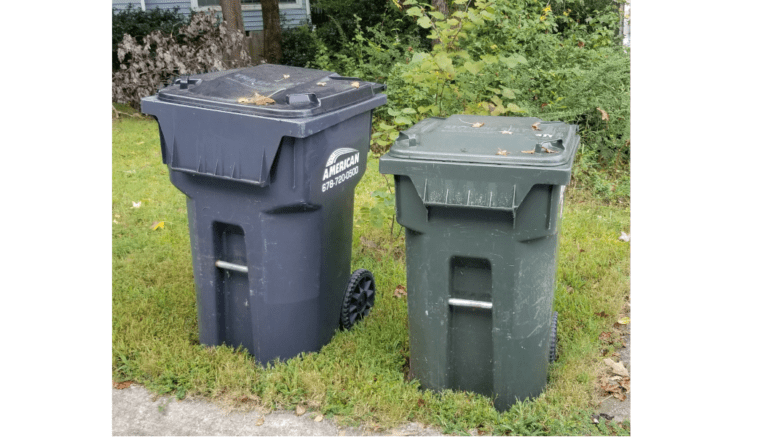Curbside recycling programs have experienced hard times recently, not just nationally, but locally as well. Powder Springs recently discontinued it’s curbside recycling program, and Kennesaw considered dropping the service, but opted for a significantly increased price per residential customer.
The Courier spoke via Zoom with Dr. Kate O’Neill, a professor of environmental science, policy and management at the University of California, Berkeley, about the difficulties faced by recycling programs, particularly the recycling of plastic. The interview was arranged by SciLine, an organization that matches journalists with scientists to help ensure accurate coverage of scientific topics.
“Plastics recycling really became a problem about five years ago, when we lost the major market for recycled plastics and plastic pellets,” she said. “Because we’ve been exporting over half of the plastic scrap to China.”
“And that’s where a lot of these local jurisdictions got their money. They would sell it on to brokers who would sell it on to China where it was either used in manufacturing or disposed of,” she said. “But either way, it made it economically possible for local jurisdictions to be able to pick up plastic and other kinds of recycling, not just plastics, and take it and ship it off.”
“So losing that market just completely threw the industry into a tailspin for a while,” O’Neill said.
She said that the solid waste haulers began renegotiating prices with the local governments, and many governments just decided to discontinue the programs altogether.
O’Neill said that about 15 percent of plastic waste is gathered for recycling, but only about 4 percent actually gets processed for reuse.
The Courier asked Dr. O’Neill whether a recent report from Greenpeace that stated only plastics labeled “one” and “two” where being actually recycled was accurate.
“Yeah, that’s accurate,” she said.
O’Neill said that the plastics labeled one and two are actually in demand, since companies like Pepsi and Coca Cola want to use more recycled plastic, but that it’s hard to get good quality recyclable plastic because the lower quality ones aren’t sorted out of the mix.
She said plastic bags, number 4 plastic, can be recycled, but not very easily, since they require special sorting, and they tend to break the equipment.
The Courier asked Dr. O’Neill about the orange bag programs where various kinds of thin plastic are sorted into a separate bag.
O’Neill said those plastics can be converted into fuel.
“But it’s also controversial, because, you know, plastic waste energy is considered potentially another dirty technology,” she said.
O’Neill said that it’s possible some of the plastic waste could be broken down chemically into virgin plastic, but “the problem with these fairly small scale initiatives is that they’re expensive and hard to scale up.”
The Courier asked Dr. O’Neill if there were any approaches for managing plastic pollution that might be effective.
“I’ll tell you one thing that’s been pretty effective globally, on the consumer level, has been banning plastic grocery bags,” she said. “That’s actually pretty prevalent in many different parts of the world. Bangladesh, in Kenya, actually two earliest examples of countries that restricted plastic bag use, because of the way they polluted the environment.”
“And that’s been picked up across Europe and in the US to some extent. And there’s been evidence to show that actually, now we’re seeing many fewer plastic bags being washed up on beaches, also finding this many fewer on the ocean floor,” she said.
“So reducing single use consumer plastics can be one way in which we address this,” said O’Neill.
“The plastics industry is fighting back on that one,” she said. “They’re actually trying to get state governments in the US, for instance, to forbid such laws, and they’ve been fairly successful.”
“The other thing is really what I think of as the Holy Grail, which is finding a good substitute for plastics that do pretty much whatever they do, but are still easily disposable within the environment,” O’Neill said.
She said some progress had been made with that, but that compostable plastics still require a lot more work to break down than other composting materials.
She said the pandemic had caused set-backs in the efforts to control plastics, and the industry pushed the CDC and departments of health to get the plastic bag bans removed, ostensibly for health reasons.
She said even San Francisco pulled back its bans on plastic bags.
The Courier asked what effect switching from curbside pickup to drop-off stations would have.
“I am a fan of these drop-off facilities or transfer stations,” she said. “I don’t think they should replace curbside, but studies have shown they can be quite effective in that you can have staff there, if you’ve got staff there who can help people sort their stuff into the different categories.”
She said the drop-off points can also become part of the community, and can help ensure that the materials are sorted properly.

